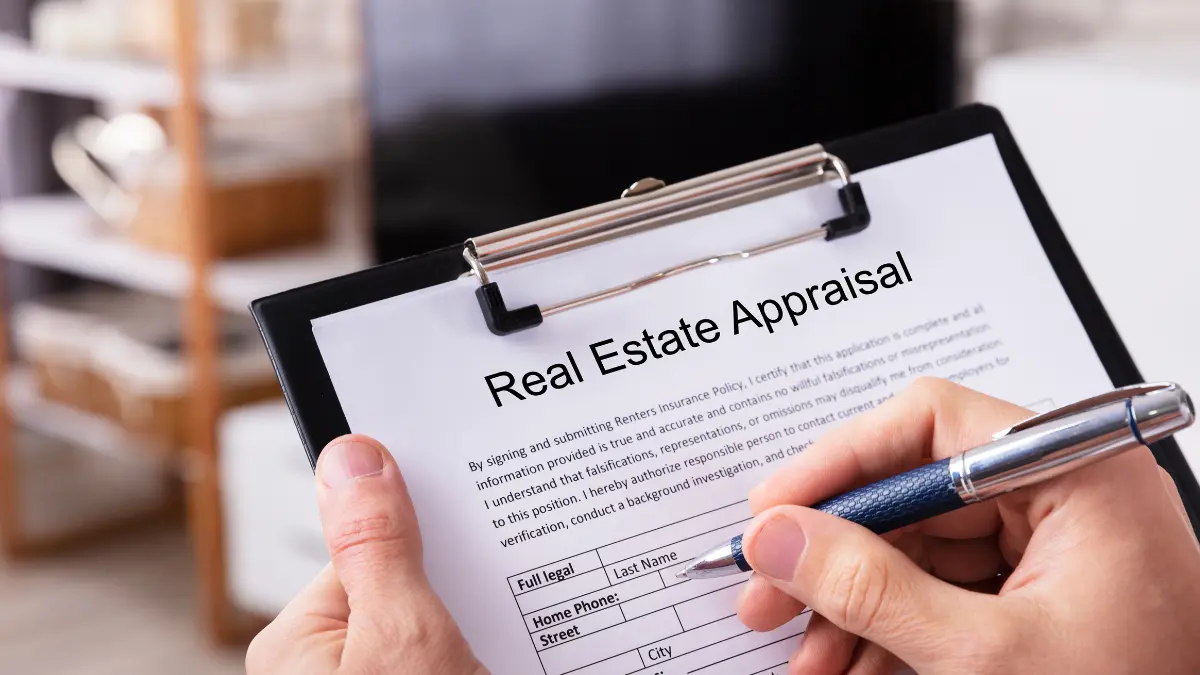Real estate appraisals are an important step in the process of buying or selling a property. It is a professional assessment of the value of a property, which helps both buyers and sellers make informed decisions. However, one aspect that often causes confusion and concern for individuals involved in a real estate transaction is appraisal cost.
In this comprehensive guide, we will delve into all aspects of appraisal costs, including their impact on property valuation, strategies for minimizing costs, differences between commercial and residential real estate appraisal costs, appraiser selection considerations, negotiation techniques, cost-effective appraisal methods, legal and ethical considerations, and emerging trends. By the end, you will have a thorough understanding of appraisal costs and be equipped with the necessary knowledge to effectively manage them in your real estate transactions.
Understanding Appraisal Costs and Their Impact

Appraisal costs are the fees charged by a professional appraiser for their services in determining the fair market value of a property. This value is used to determine the price of the property in a real estate transaction. The cost of an appraisal can vary greatly depending on factors such as the location, type, and complexity of the property, as well as the experience and reputation of the appraiser.
The impact of appraisal costs on a real estate transaction is significant. For sellers, it determines the listing price of their property, while for buyers, it influences the amount they are willing to pay. In some cases, lenders also require appraisals before approving a mortgage, making appraisal costs crucial for securing financing. Therefore, it is essential to understand the different factors that affect appraisal costs and how they can be managed to ensure a smooth and successful real estate transaction.
Factors Affecting Appraisal Costs
- Property Location: The location of a property plays a significant role in determining its value and, consequently, the appraisal cost. Properties located in urban areas or prime locations are likely to have higher appraisal costs due to the higher demand and prices in these areas.
- Property Type: The type of property being appraised also affects the cost. Commercial properties, such as office buildings or retail spaces, tend to have higher appraisal costs compared to residential properties because they are usually more complex and require a deeper analysis.
- Property Size and Complexity: Larger properties or those with unique features will require more time and effort from the appraiser, resulting in higher appraisal costs. For example, a single-family home will generally have a lower appraisal cost compared to a multi-unit apartment building.
- Appraiser’s Experience and Reputation: Experienced and reputable appraisers may charge higher fees for their services compared to those who are just starting in the industry. This is because they bring a higher level of expertise and credibility to the appraisal process.
Managing Appraisal Costs
- Do Your Research: Before hiring an appraiser, it is essential to do some research and compare costs from different professionals. Look for appraisers with experience and a good reputation, but also consider their fees. Keep in mind that the cheapest option may not always be the best one, so be sure to balance cost with quality.
- Provide Accurate Information: To ensure an accurate appraisal and avoid potential additional costs, provide detailed and accurate information about the property to the appraiser. This includes recent renovations, upgrades, and any unique features that may affect the value of the property.
- Consider Group Appraisals: If you are buying or selling multiple properties in the same area, consider getting a group appraisal. This can save time and money compared to getting individual appraisals for each property.
- Stay Involved in the Process: It is crucial to stay involved in the appraisal process to understand the steps being taken and ask questions if necessary. This can help identify any potential issues that may cause additional costs and address them early on.
Minimizing Appraisal Costs: Strategies and Best Practices

As discussed, appraisal costs can significantly impact the overall cost of a real estate transaction. Therefore, it is essential to minimize these costs wherever possible. Here are some strategies and best practices for managing appraisal costs effectively.
Negotiate with the Lender
In some cases, lenders may be willing to cover the cost of the appraisal as part of the mortgage process. This is especially true if they have a good relationship with the appraiser or if the appraisal is required for financing. It is worth considering negotiating with the lender to see if they will cover all or part of the appraisal costs.
Get Multiple Quotes
Just like any other professional service, it is always a good idea to get multiple quotes from different appraisers. This will give you a better understanding of the average cost and allow you to compare fees and services offered by different appraisers. Be sure to consider their qualifications and experience when making your decision.
Prepare the Property for the Appraisal
Preparing the property before the appraisal can help ensure an accurate assessment and potentially lower costs. This includes cleaning, decluttering, and fixing any minor maintenance issues. An appraiser’s job is to determine the value of the property as it currently stands, so presenting a well-maintained and clean property can reflect positively on its value.
Consider Alternative Valuation Methods
Traditional appraisals involve a physical inspection of the property by the appraiser. However, there are alternative methods of valuation that may be more cost-effective, such as automated valuations or broker price opinions. These methods use data and algorithms to determine the value of a property without a physical inspection.
The Role of Appraisal Costs in Property Valuation

Appraisal costs are an integral part of the property valuation process. A property’s value is not just determined by its location, size, and features, but also by the current market conditions and comparable properties in the area. An appraiser’s job is to take all of these factors into account and provide an objective assessment of the property’s value.
The Valuation Process
The appraisal process starts with a physical inspection of the property by the appraiser. During this visit, the appraiser will take note of the property’s features, condition, and any upgrades or renovations. They will also take measurements and photos of the property. The appraiser will then research the local market and assess recent sales of comparable properties to determine the fair market value of the property being appraised.
Once the appraisal report is completed, it is sent to the client, which could be the buyer, seller, lender, or other interested parties. The report will include details on the property, the methods used to determine its value, and any factors that may have affected the appraisal. The appraisal is then used to inform the real estate transaction, and the property’s value is considered in the negotiation process.
Factors Affecting Property Valuation
- Location: As mentioned earlier, location plays a crucial role in determining the value of a property. Properties located in desirable areas, such as near good schools, public transportation, and amenities, tend to have higher values than those in less desirable locations.
- Property Type: Different types of properties will have different values. For example, commercial properties are typically valued based on their potential income, while residential properties are valued based on comparable sales in the area.
- Market Conditions: The state of the real estate market at the time of the appraisal can affect the property’s value. In a seller’s market, where there is high demand and limited supply, property values may be higher compared to a buyer’s market, where there is low demand and an abundance of properties for sale.
- Property Features and Condition: The size, layout, and condition of a property also play a significant role in its valuation. Properties with more bedrooms, bathrooms, or unique features will generally have higher values compared to those with fewer amenities.
Appraisal Costs vs. Property Value
While appraisal costs may seem like an added expense in a real estate transaction, they can potentially save buyers and sellers from overpaying or undercharging for a property. In some cases, the cost of an appraisal may be significantly lower than the value it brings to the negotiation process.
For example, if a buyer is considering purchasing a property for $500,000, but the appraisal comes back with a value of $450,000, it can save them from overpaying and potentially losing money in the long run. On the other hand, if the appraisal comes back with a value of $550,000, the buyer may see this as an opportunity to negotiate a lower price, potentially saving them thousands of dollars.
Appraisal Costs in Commercial versus Residential Real Estate
Appraisals are used in both commercial and residential real estate transactions, but there are significant differences in how they are conducted and the associated costs.
Commercial Real Estate Appraisal Costs
Commercial real estate appraisals can be complex and involve multiple methods of valuation. These may include the income approach, sales comparison approach, and cost approach. Depending on the property type, size, and location, an appraisal can cost anywhere between $2,000 to $10,000 or more. In some cases, the cost may exceed $20,000 for large or complex commercial properties.
The higher cost of commercial real estate appraisals is due to the complexity of these properties. Unlike residential properties, which are typically similar in terms of design and use, commercial properties vary greatly in terms of size, location, and intended use. For example, an appraiser may need to consider factors such as rent, vacancy rates, and operating expenses when appraising an office building, whereas these may not be relevant for a residential property.
Residential Real Estate Appraisal Costs
Residential real estate appraisals are generally less complex compared to commercial appraisals, resulting in lower costs. The average cost of a residential real estate appraisal ranges from $300 to $500, with most falling within the $350 to $450 range.
One significant difference between commercial and residential appraisals is that residential appraisers typically use the sales comparison approach. This involves looking at recent sales of comparable properties in the area to determine the value of the subject property. This approach is simpler and faster compared to other methods used in commercial appraisals, resulting in lower costs.
Appraiser Selection and Appraisal Cost Considerations
Selecting the right appraiser is crucial in ensuring an accurate and fair appraisal. Here are some factors to consider when choosing an appraiser and how they can impact appraisal costs.
Qualifications and Experience
The qualifications and experience of an appraiser can significantly affect their fees. Those with advanced certifications, such as the MAI (Member of Appraisal Institute) or SRA (Senior Residential Appraiser), have spent more time and money on education and training, making them more experienced and knowledgeable in their field. As a result, they may charge higher fees compared to those who are just starting in the industry.
It is essential to consider whether the appraiser’s experience and qualifications are necessary for your specific property type and location. In some cases, it may be more cost-effective to hire an appraiser with fewer qualifications if they have the necessary expertise and knowledge of the local market.
Geographic Location
Property values can vary significantly depending on the location. Therefore, the cost of an appraisal may also differ based on where the property is located. Appraisers working in urban areas or prime locations may charge higher fees compared to those in smaller towns or rural areas.
When selecting an appraiser, consider their location and how it may affect their fees. In some cases, hiring a local appraiser may result in lower costs since they are familiar with the area and may not need to travel far to conduct the appraisal.
Scope of Work
The scope of work required for an appraisal can also impact the cost. The more complex the property, the longer it may take for the appraiser to complete the appraisal, resulting in higher fees. Additionally, if the appraisal requires a more detailed analysis and report, it may also increase the cost.
When discussing appraisal costs with an appraiser, be sure to understand the scope of work involved and how it will affect the overall cost. Some appraisers may offer different levels of service, such as basic, standard, or comprehensive, which may affect the cost.
Negotiating Appraisal Costs: Tips and Techniques
As with any other service, it is possible to negotiate the cost of an appraisal. Here are some tips and techniques to help you negotiate appraisal costs effectively.
Understand the Market
Before negotiating with an appraiser, it is essential to have a good understanding of the current market conditions. This can give you an idea of what you can realistically expect to pay for an appraisal based on factors such as property type and location. Having this knowledge can help you make informed decisions and negotiate more effectively.
Ask for a Breakdown
When receiving quotes from different appraisers, ask for a breakdown of the costs. This can help you understand where the fees are coming from and whether there are any negotiable items. Some appraisers may be willing to reduce their fees if certain services, such as a physical inspection, are not required.
Consider Package Deals
If you are a real estate investor or have multiple properties that require appraisals, consider negotiating a package deal with an appraiser. This can potentially save you money compared to getting individual appraisals for each property.
Be Reasonable
While it is always worth trying to negotiate appraisal costs, it is essential to be reasonable and not expect significant reductions or discounts. Keep in mind that appraisers are professionals providing a valuable service, and their fees are based on their time, effort, and expertise.
Cost-Effective Appraisal Methods for Different Property Types
As mentioned earlier, there are different methods of valuing a property, some of which may be more cost-effective depending on the property type and location. Here are some of the most commonly used appraisal methods and their associated costs.
Sales Comparison Approach
The sales comparison approach is the most commonly used method for residential real estate appraisals. It involves looking at recent sales of comparable properties in the area and making adjustments based on differences between the subject property and the comparables. This method is relatively simple and inexpensive compared to other methods, making it a cost-effective option for residential properties.
Income Approach
The income approach is used in commercial real estate appraisals and involves estimating the potential income the property could generate. This method is more complex and time-consuming compared to the sales comparison approach, resulting in higher costs. However, it is necessary for accurately valuing income-producing properties such as office buildings, retail spaces, or multi-unit residential properties.
Cost Approach
The cost approach is based on the principle of substitution, which states that an informed buyer will not pay more for a property than the cost of building a similar one. This method is typically used for unique or specialized properties that do not have many comparables in the area. It involves estimating the cost of replacing the property and making adjustments for depreciation. The cost approach can be expensive compared to other methods due to the level of detail and expertise required.
Legal and Ethical Considerations in Appraisal Cost Management
Appraisers are bound by a code of ethics and must adhere to legal requirements when conducting an appraisal. It is essential to understand these considerations to ensure that the appraisal process is fair and accurate.
Federal Regulations
The appraisal industry is regulated by federal, state, and local laws. The most notable federal regulation is the Uniform Standards of Professional Appraisal Practice (USPAP), which sets minimum standards for appraisals and ensures uniformity in appraisal reports. Appraisers are required to comply with USPAP when conducting appraisals for federally related transactions.
Conflict of Interest
To uphold ethical standards, appraisers must declare any conflicts of interest that may affect their ability to provide an unbiased opinion of value. This includes any personal or business relationships with parties involved in the transaction. If a conflict of interest is identified, the appraiser must either recuse themselves from the assignment or disclose the conflict in their report.
Fee Splitting
Fee splitting refers to an agreement between different parties where one party pays a portion of the appraiser’s fee to another party for referring or recommending their services. This is considered unethical and is prohibited by USPAP. Appraisers are expected to set their fees independently and not be influenced by third parties.
Legal Liability
Appraisers can be held legally liable for errors or omissions in their appraisal reports. Therefore, they must adhere to professional standards and take all necessary steps to ensure an accurate and reliable appraisal. Failure to do so can result in legal action being taken against them.
Emerging Trends and Innovations in Appraisal Cost Analysis
The real estate industry is constantly evolving, and this includes appraisal methods and cost analysis techniques. Here are some emerging trends and innovations in appraisal cost analysis.
Automated Valuation Models (AVMs)
Automated Valuation Models (AVMs) use data and algorithms to determine the value of a property without the need for a physical inspection by an appraiser. AVMs are becoming increasingly popular due to their efficiency and cost-effectiveness. However, they are not suitable for all properties and may not provide the same level of accuracy as a traditional appraisal.
Artificial Intelligence (AI) and Big Data
Artificial Intelligence (AI) and big data are transforming the way appraisers analyze data and make decisions. AI can help identify patterns and trends in large datasets that may be missed by human appraisers. This can result in more accurate appraisals and potentially lower costs.
Blockchain Technology
Blockchain technology is being used to streamline the appraisal process and reduce costs. It allows for secure storage of data and transactions, reducing the risk of fraud or manipulation. Additionally, blockchain can improve the speed and efficiency of the appraisal process, resulting in quicker turnaround times and potentially lower costs.
Conclusion
Appraisal costs are an essential aspect of real estate transactions and can significantly impact the overall cost and success of the transaction. Understanding the factors that affect appraisal costs, strategies for minimizing them, and the role they play in property valuation is crucial for buyers, sellers, and investors. Selecting the right appraiser,
Read more blogs : Unveiling the Transformative Power of Eight Sleep’s Subscription Service




















+ There are no comments
Add yours